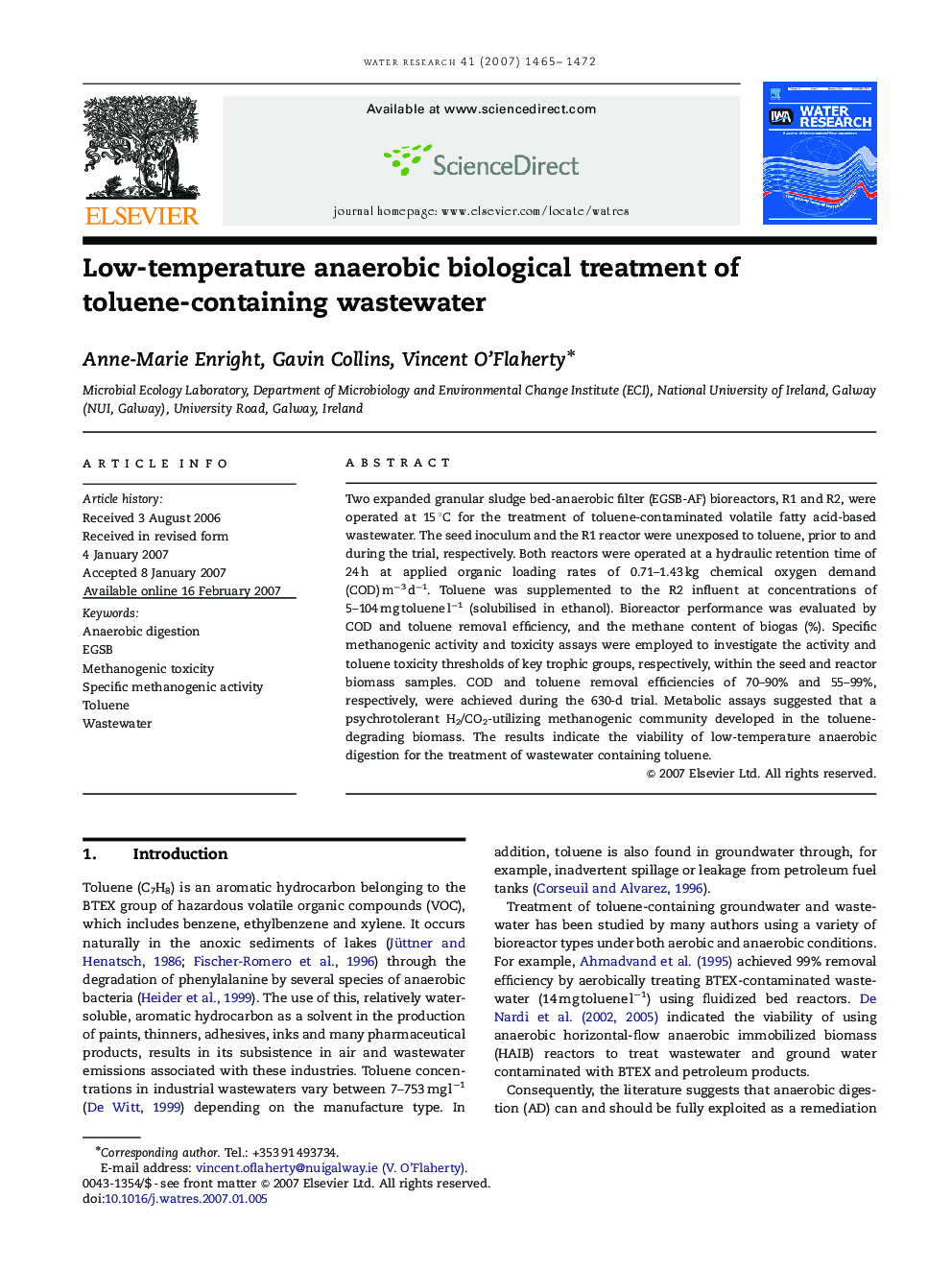| Article ID | Journal | Published Year | Pages | File Type |
|---|---|---|---|---|
| 4486467 | Water Research | 2007 | 8 Pages |
Two expanded granular sludge bed-anaerobic filter (EGSB-AF) bioreactors, R1 and R2, were operated at 15 °C for the treatment of toluene-contaminated volatile fatty acid-based wastewater. The seed inoculum and the R1 reactor were unexposed to toluene, prior to and during the trial, respectively. Both reactors were operated at a hydraulic retention time of 24 h at applied organic loading rates of 0.71–1.43 kg chemical oxygen demand (COD) m−3 d−1. Toluene was supplemented to the R2 influent at concentrations of 5–104 mg toluene l−1 (solubilised in ethanol). Bioreactor performance was evaluated by COD and toluene removal efficiency, and the methane content of biogas (%). Specific methanogenic activity and toxicity assays were employed to investigate the activity and toluene toxicity thresholds of key trophic groups, respectively, within the seed and reactor biomass samples. COD and toluene removal efficiencies of 70–90% and 55–99%, respectively, were achieved during the 630-d trial. Metabolic assays suggested that a psychrotolerant H2/CO2-utilizing methanogenic community developed in the toluene-degrading biomass. The results indicate the viability of low-temperature anaerobic digestion for the treatment of wastewater containing toluene.
